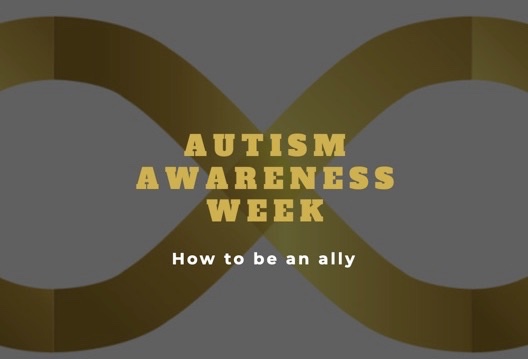How to be an ally to autistic people
This week marks World Autism Awareness Week. From 29 March – 4 April 2021, people and communities will be prompted to join forces to raise awareness, fundraise and amplify the voices of autistic people.
Whilst it’s vital that all of the above is done and celebrated all-year-round, Autism Awareness Week does give a stage for important information and messages to be heard.
With this in mind, we’ll be shining the spotlight on different topics and stories across our social media channels over the course of the week. But what better place to start than providing a few pointers on how to be an ally to autistic people, this week and beyond?
What is an ally?
Being an ally means learning about and standing up for issues even though they might not directly affect you.
Becoming an ally means that you learn about autism by listening to autistic people’s experiences, digesting that information and showcasing support.
Allies are key. But, how do you begin on your journey to becoming an ally to autistic people?
We’re going to share exactly that with you today. Here are just a few ways you can become an ally to autistic people, now and beyond Autism Awareness Week.
- Allowing and accepting non harmful stimming (rocking, tapping etc)
- Respecting personal space (some autistic people hate to be touched even by family, for example)
- Respecting identity first language: The majority of autistic people prefer to be referred to just like that – autistic people – rather than ‘people or person with autism’. This has a long history of being ignored, although it has improved in recent years. You can help foster that improvement by adopting identity first language.
- Don’t use functional labels: ‘Low functioning’ is belittling, leading to an autistic person being treated as incapable, whilst ‘high functioning’ means they often are refused support as they appear to be managing. Disregarding these labels helps you to avoid harmful stereotypes and aid your journey to becoming an ally.
- Amplify autistic voices: Many online spaces are dominated by carers and parents who quite often talk over autistic voices. Wanting to raise awareness and further the cause of autistic people is important, but speaking over or on behalf of an autistic person doesn’t hold the same weight. Simply standing with and alongside an autistic person is enough. Being an ally means holding the megaphone for others to be heard, not always speaking into it yourself.
- Read about autistic people’s experiences: Echoing the sentiment from the last point, it’s vital to learn about autism by autistic people themselves. The internet is becoming increasingly populated with articles, blogs and vlogs by autistic people sharing their stories. Find them, learn from them and remember them.
- Be aware of ‘masking’: Whilst the concept of masking can be tricky to word in a few sentences, it is essentially like assuming a mask in order to be seen as ‘socially acceptable’ or in order to ‘fit in’. This can have a negative impact. In order to avoid this, you should be aware of masking and its potential impact.
- Support each person to be their true individual self: The phrase, ‘every autistic person you meet is different’, is so often reiterated, but this is true across the board, no matter what group you are talking about. Accepting and allowing someone to be their true self and not forcing them to do things to ‘fit in’ will afford them the space to really blossom. It means that they don’t need to spend energy focusing on NOT doing something (masking) which leads to burnout and potential mental health issues.
Let this be your reminder of the importance and value of becoming an ally. Fostering environments of inclusivity can really help autistic people, so it’s important to do what you can to create that space.
There is so much more that could have been added here so if you have your own suggestions and ideas to share, please do feel free to get in touch with us. You can tag us on Facebook and Twitter @DisabilityWales.
We’d love to hear from you!



